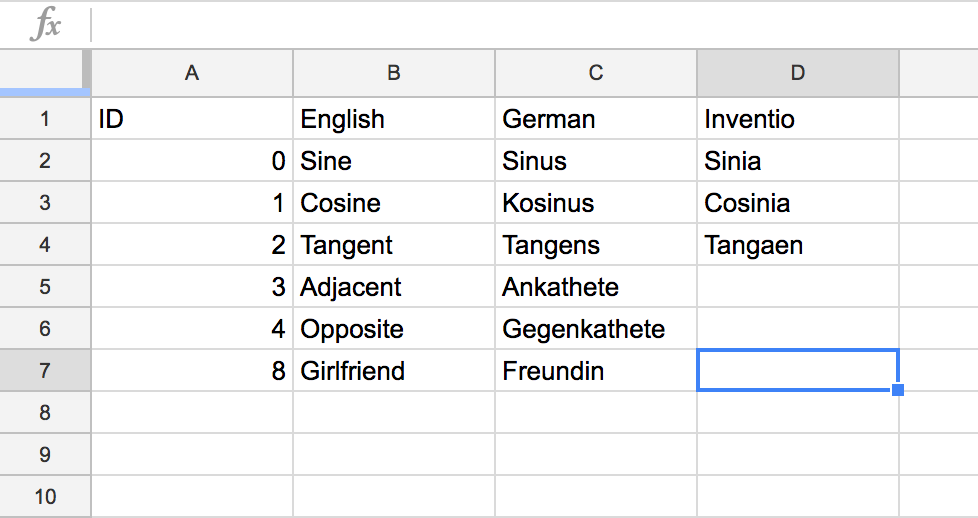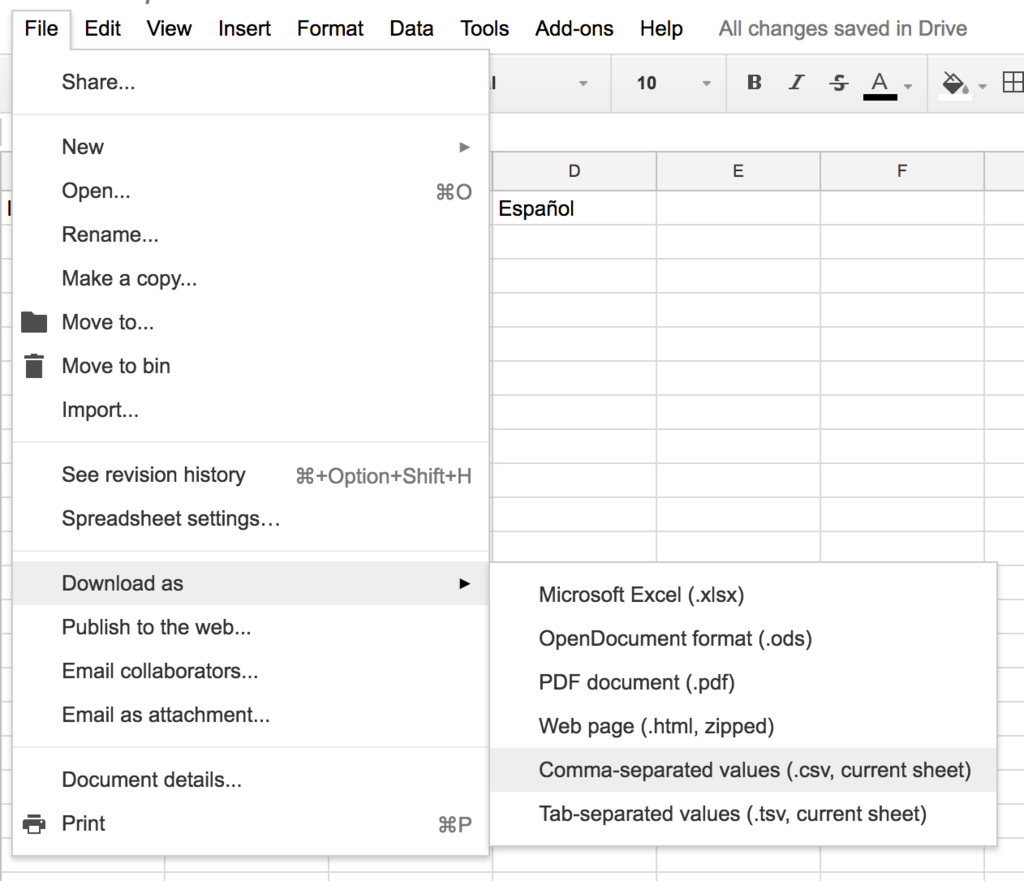csvll
| Crates.io | csvll |
| lib.rs | csvll |
| version | 0.1.6 |
| created_at | 2017-01-23 16:12:10.245836+00 |
| updated_at | 2017-01-28 17:42:16.362027+00 |
| description | A library for localization through csv-files. |
| homepage | |
| repository | https://github.com/nebula/csvll |
| max_upload_size | |
| id | 8195 |
| size | 8,133 |
documentation
README
CSV Localization Library
Localization through CSV tables.
Getting Started
In this walkthrough, we'll be using Google Sheets as a tool.
Step 1 - Creating a Table

As you can see, a table with IDs in the first column, and languages in the first row should be created. This should be relatively easy to comprehend.
Step 2 - Save Table as .csv

Step 3 - Add csvll as Dependency
- In your cargo.toml add
[dependencies]
// Assign latest version (Might not be the one saying)
csvll = "0.1.6"
2. In the command line run `cargo install`
3. In your executable/library of choice add ```Rust extern crate csvll;
use csvll::Manager;
### Step 4 - Create Manager & Parse
Now we need a manager that parses the information for us
```Rust
// The parameters are directory, filename & extension
// My file is located outside of the project
let mut manag = Manager::new("..", "test_table", ".txt");
// Then parse the file assigned
manag.parse();
Step 5 - Set Default Language
// (Code continues from earlier)
// Set your default language with any available language id
m.set_def(0);
// Get language reference & vector of word references as a tuple
let (lang, word_vec) = m.get_def();
Models
Language
id: i32,
name: String
// Initalizer
fn new(id: i32, name: &str) -> Language { /* ... */ }
Word
id: i32,
lang_id: i32,
val: String
// Initalizer
fn new(id: i32, lang_id: i32, val: &str) -> Word { /* ... */ }
Manager
file: File,
langs: Vec<Language>,
words: Vec<Word>,
def_lang: i32
// Initalizer
fn new(direc: &str, name: &str, ext: &str) -> Manager { /* ... */ }
// Further methods
// Parses languages & words into manager model
fn parse() { /* ... */ }
// Sets default language by language id
fn set_def(lang_id: i32) { /* ... */ }
// Returns reference to set def. language & vector of references to words of language
fn get_def() -> (&Language, Vec<&Word>) { /* ... */ }
// Returns references to word of current language at index
// Really works since 0.1.6.
fn get_word(word_id: i32) -> &Word { /* ... */ }
// Returns vector of references of words of current language at indicies
fn get_words(word_ids: Vec<i32>) -> Vec<&Word> { /* ... */ }